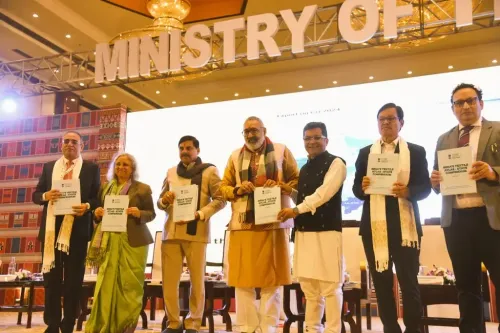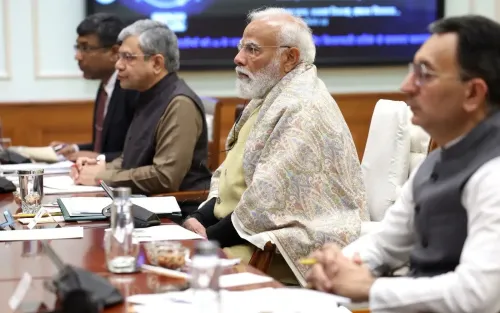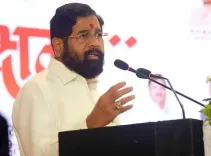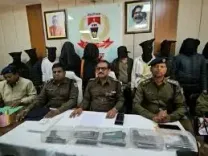Why Did NCLT Freeze Gensol's Bank Accounts Amid Financial Misconduct Claims?

Synopsis
Key Takeaways
- NCLT's intervention reflects serious corporate governance issues.
- Urgent measures by RBI and banks to secure Gensol's assets.
- SEBI's actions highlight the need for accountability among corporate leaders.
- Over Rs 200 crore remains unaccounted for in Gensol's financial dealings.
- Forensic audit ordered to scrutinize Gensol’s financial records.
New Delhi, May 29 (NationPress) The National Company Law Tribunal (NCLT) in Ahmedabad has mandated the freezing and attachment of all bank accounts and lockers belonging to Gensol Engineering Limited and its affiliated entities.
This decision comes in response to a complaint lodged by the Ministry of Corporate Affairs (MCA), which alleges that the company has engaged in severe corporate fraud and financial misconduct.
The tribunal has provided urgent interim relief to the government, enabling the Reserve Bank of India (RBI) and the Indian Banks' Association to take prompt measures to safeguard Gensol’s financial assets.
The objective is to avert any further misuse of funds or manipulation of evidence. The NCLT also indicated that there is preliminary evidence suggesting significant wrongdoing by the company’s promoters.
Notices have been instructed to be sent to all relevant parties, with the next hearing set for June 3.
This incident follows closely after the Securities and Exchange Board of India (SEBI) took rigorous action against Gensol’s prominent promoters, Anmol Singh Jaggi and Puneet Singh Jaggi.
On April 15, SEBI prohibited both individuals from participating in the securities market and from holding significant managerial positions.
The regulator’s investigation unveiled that Gensol misappropriated funds raised through a loan-based electric vehicle (EV) acquisition scheme.
As per SEBI, Gensol secured loans amounting to Rs 975 crore to purchase 6,400 EVs, but only acquired 4,704 vehicles at a cost of Rs 567.73 crore.
Over Rs 200 crore remains unaccounted for, raising concerns about potential fund misallocation.
To compound the company’s issues, credit rating agencies ICRA and Care Ratings downgraded Gensol’s Rs 2,050 crore debt to default status in February.
This downgrade encompassed more than Rs 1,640 crore in long-term loans and over Rs 400 crore in short-term borrowings.
When pressed about the abrupt downgrade, Gensol reportedly presented counterfeit letters asserting that they had been timely with their debt repayments.
These documents were allegedly issued by state-owned lenders IREDA and Power Finance Corporation (PFC), both of which later denied providing any such correspondence.
Investigations have also disclosed that the company began defaulting on payments as early as December 2024, despite continuing to assure rating agencies of timely repayments.
In light of these troubling developments, Gensol has been instructed to defer a recently announced stock split.
SEBI has also mandated the appointment of a forensic auditor to meticulously examine the company’s financial records and those of its related parties.










